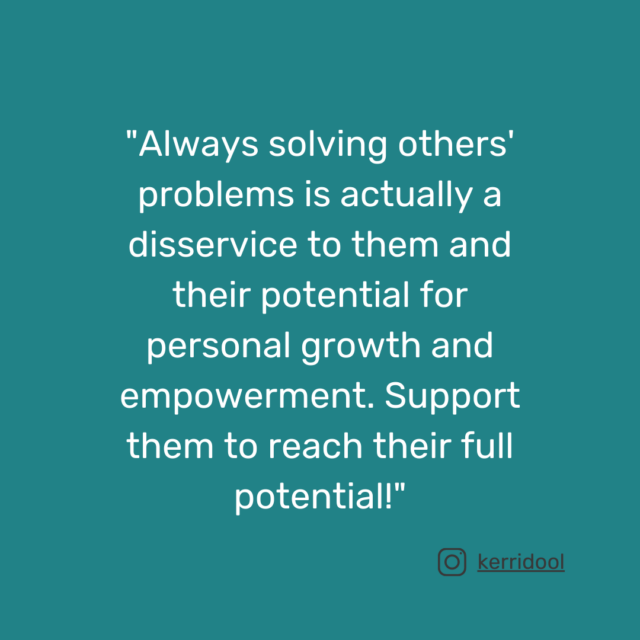
Picture it: Your Zoom presentation for work is scheduled to start in ten minutes, your eight-year-old exclaims that their online schooling just crashed from your living room, your mom is calling to ask you for a ride to her next doctor’s appointment on the cell phone that your other child is holding hostage and the dog just peed at the door because nobody else is letting him out.
You are being, doing, and embodying a version of yourself that feels humanly impossible to maintain, and yet, the same confirmatory “yes” to all requests emerges from your lips at each passing moment of an increasingly exhausting day.
If this description resonates with you, perhaps you, like many of us, are a people pleaser. You know, the one who attempts to make life a little easier for others, the one who can’t quite say no even when you are feeling completely overwhelmed by life.
We all like to be validated, accepted and needed. Those are facets of most relationships. It feels good to help someone in need. It’s also a great feeling when we find that perfect gift for a child, friend, or family member who will really appreciate it. That act of giving or helping with sincerity because we want to show someone we care for them and that they matter to us is the basis from which healthy relationships develop and are maintained.
This can go off course when we find ourselves doing things for others and accepting more responsibility for other peoples’ lives because we need their approval and we’re worried about the aftermath of saying “no.” We may face criticism, they may not like us as much, we may not get that promotion at work, or we might view ourselves as a “bad” person. These are the narratives we tell ourselves when we engage in people-pleasing and it keeps the fears that fuel our behaviour alive. It erodes our sense of self.
In the moment of giving from a place of pleasing others, our egos are fed and we feel needed, but we deplete our emotional currency. This is short-lived as we can start to feel manipulated and used, instead of valued and embraced in a reciprocal exchange.
We leave very little room for our wants or our needs. What can inadvertently arise is us growing tired, irritable and resentful of our obligations, viewing them as a chore. This can fracture relationships and the way we show up in them.

We may also be enabling someone else’s unhealthy behaviours or poor choices If we are always there to mitigate the consequences of the life they are intentionally leading (i.e they mismanaged their money and need to borrow from you, they need a ride, they need a place to stay, they need you to tell them they are an amazing person). This, by the way, is an empty cup that never gets filled and they will always need you to keep pouring into it.
It’s actually more loving to hold people accountable and to encourage their capabilities than it is to rescue them. It enhances their self-esteem, their competency and creates a healthier relationship dynamic.
People don’t like to feel helpless or incompetent. It creates a power-differential (with the “helper” being the perceived authority) in the relationship. It is actually a disservice to them and their potential for personal growth and empowerment. Support them to reach their full potential!
For Parents: Not doing or buying everything they ask, is an act of love. They will never find someone that says “yes” to all of their requests in the real world. We help children to become more emotionally intelligent by experiencing disappointment early on in life when we are there to support them with those emotions. This creates resilience in them!
Part of giving and being there for others is predicated on setting healthy boundaries for ourselves and with them.
I’ve listed some questions below that will help you identify the true source of your giving time, resources and energy to requests that may come your way.
I’ve also included a brief script that you can use if you would like to decline from something, but it feels uncomfortable and you just aren’t sure how to politely express it.
Do I want to do this or do I feel I have to/should do this?
Do I want them to like me?
What does this say about me if I say “no?”
What does this say about me if I say “yes?”
How will I feel if I don’t have to say “yes” to this?
I can imagine how you would feel like my help could make things easier with this situation. I really value you and I want you to know that I care. I have to make space right now for some things that I need to focus on and I wouldn’t be able to (insert the request they are asking you for). What are some other options for you in this situation (problem-solve with them)?
When we become more assured of who we are (self-concept) and we can commit to ourselves in a healthy way, the need to people please becomes less relevant to our success and approval in life.
My next blog will delve more deeply into this concept of commitment to self and how that shapes our relationships with ourselves and others!
Warmest Wishes,

Start with one of our Wellness Team Members!
Copyright © 2021 K Dool Social Work Professional Corporation
Request a call for more information on our services